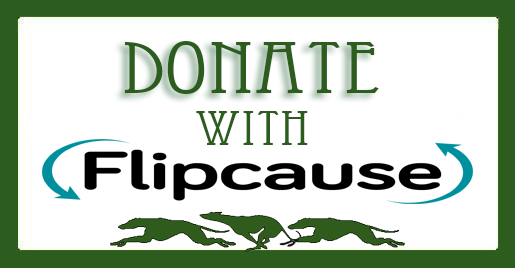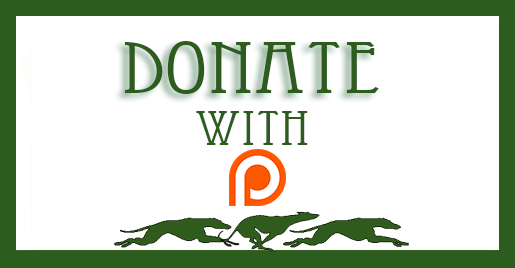Two Witches delivered plenaries at the Parliament of Word’s Religions this year: Phyllis Curott and Dr. Gus diZerega. Curott is Phyllis Curott, a Witch, attorney, author, and founder of the Temple of Ara, who is a Trustee and was the Program Chair of the 2023 Parliament of the World’s Religions. Dr. Gus diZerega is an author and third-degree Elder in Gardnerian Wicca and also a (retired) Political Scientist (Ph.D. Berkeley) whose academic focus was democratic theory and environmental theory and policy.
The Wild Hunt shares their speeches here in their entirety to maintain a community record.
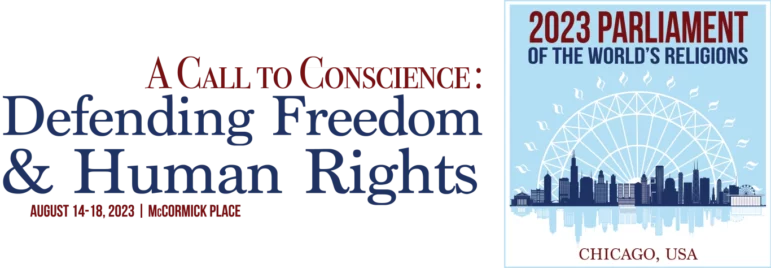
Opening Speech by Phyllis Curott
Women’s Assembly, Parliament of World’s Religions, Tuesday, August 15, 2023, 10:00 AM, McCormick Place Lakeside Center
I’m Phyllis Curott and it’s my honor and joy to welcome you to the Women’s Assembly of the 2023 Parliament of the World’s Religions. What amazing divine feminine energy is in this room!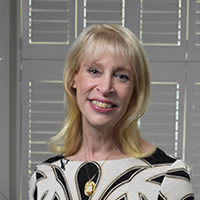
Today, we convene with a Call to Conscience: Defending Freedom and Human Rights, gathering from across the globe, from diverse faiths and backgrounds, but united in our commitment to women’s wisdom, women ‘s spirit, and women’s freedom.
I stand before you today with a profound sense of urgency and determination, to address a pressing issue that threatens the very fabric of humanity: the growing threat of global authoritarianism and its disproportionate and damaging impact on women.
In 2009 President Jimmy Carter addressed the Parliament declaring that “…discrimination against women and girls is the most pervasive and unaddressed human rights violation on earth.”.
Today, just as we thought it was getting better, now, everywhere we turn, we are facing restrictions on every aspect of our lives.
The United States Supreme Court’s decision in Dobbs v. Jackson Women’s Health Organization, is a profound blow to women’s personal health, to our reproductive rights and bodily autonomy, and to our personal freedom. It sent shockwaves throughout the world, imposing one religious view on those who don’t share those views.
Theocracy is authoritarianism dressed up in religious robes, It once again imprisons the women of Afghanistan who can’t go to school, can’t work, can’t leave the house without the threat of violence and death.
Iranian women and girls are subjected to one of the strictest forms of state-imposed gender discrimination in the world. But they pulled off their headscarves and danced in the streets. They have faced beatings and poisoning; jail and death and they have refused to be silenced. Their fortitude is a beacon of hope for us all.
In 2015, the Parliament adopted The Declaration for the Dignity and Human Rights of Women, reiterating the Elders’ call to conscience: “The justification of discrimination against women and girls on grounds of religion or tradition, as if it were prescribed by a Higher Authority, is unacceptable.”
We changed the moral compass. We must change the world.
From Asia to Africa, the Americas to Europe, women are breaking barriers, challenging norms, and shattering stereotypes. The strength of our collective voices is a testament to the unwavering spirit of the human soul, of women’s souls yearning for liberty and equality. Our presence here today is a testament to the strength of our collective voice and our unwavering dedication to the cause of women’s freedom, dignity, and human rights.
The values at the heart of our diverse faiths – compassion, justice, love – bind us together in this cause. We are women who share a common thread of grace that surpasses our differences.
We carry the hope of millions of women worldwide who look to us to remember their plight and their bravery. Let us use our platforms to amplify their voices, uplift their stories, and break the chains that bind them, that bind us.
Together, we can create a world where every woman’s right to live with dignity, freedom, and human rights is honored and protected. Let us use our platform to amplify their voices, uplift their stories, and break the chains that bind them. Together, we can create a world where every woman’s right to live with dignity, freedom, and human rights is honored and protected.
And now it’s my pleasure to introduce the rest of the Women’s Task Force who, with staff and volunteers, worked tirelessly to lift women’s voices and spirits at this Parliament! Together we are going to share the Declaration with you. Ann Smith, Pat Fero, Sharan Singh, Kehkashan Basu, Sande Hart, Miriam Balinski and watching us from home, Dolly Dastoor.
DECLARATION
We have many names for you, and all are your true names.
We have many rituals for you, and all are your true rituals.
There is no end to you, Goddess, heaven’s queen.
Thank you all! May blessings be upon us all.
![]()
It’s getting close to Mabon and we must ask again for support from our community. Your financial gifts keep The Wild Hunt running. Without you, we don’t exist.
If you are able to make a donation or a recurring contribution, here are two ways to do so. Using Flipcause, through our fiscal sponsor, Independent Arts and Media, for tax-deductible donations:
and for those who may not want or can use or apply for a US tax-deduction tax deduction, through our Patreon
As always, thank you for your support of The Wild Hunt!
![]()
Opening Speech by Phyllis Curott Crisis Plenary, Parliament of World’s Religions, Tuesday, August 15, 2023, 1:00 PM, McCormick Place Lakeside Center
Good afternoon, everyone. I’m Phyllis Curott, Program Chair for the 2023 Parliament of the World’s Religions and it’s my privilege to welcome you to our Plenary on the Crisis of Authoritarianism.
First, they came for the socialists, and I did not speak out—because I was not a socialist.
Then they came for the trade unionists, and I did not speak out—because I was not a trade unionist.
Then they came for the Jews, and I did not speak out—because I was not a Jew.
Then they came for me—and there was no one left to speak for me.
These are words of contrition, written after the Second World War, by the Lutheran Pastor Martin Niemoller. These are also words of warning. I understand this warning: My mother was Jewish and I am a wicce, a priestess of a persecuted faith, a memory keeper for the tens of thousands – mostly women – who were tortured and murdered for their faith.
Today, we are all standing at a pivotal moment where history seeks to repeat itself. It’s a moment of urgency.
An existential, growing, global scourge has returned. It is manifesting in tyrants and strongmen who commit crimes against humanity, suppress fundamental freedoms, subvert democracies, and murder the truth with lies. They intimidate with threats and violent mobs, imprison and murder their critics, wink at domestic terrorism, and pursue nationalist wars.
Bullies and despots dehumanize us because of our ethnicity or nationality, our political affiliation or who we love, because we are immigrants or refugees, because of our race or our religion. They foster hate and stoke fear by turning us, whoever we are, into “the other.”They seek to divide us and undermine the values that all our faiths hold dear –to live with compassion, justice, and love.
All over the world, we are witnessing the erosion of religious freedom and the persecution of minorities.
Everywhere we turn, the dignity, autonomy, and human rights of women are under assault. It is a stark reality that transcends borders, cultures, and faiths—a reality that demands our collective action and moral courage.
As peoples of faith and spirit, we have a singular responsibility. Here is the truth we must all confront and change: Despots are misappropriating religions to justify the unjustifiable.
Tyrants proclaim themselves saviors, posturing with religious symbols and exploiting language to affirm their power. And tragically, there are religious leaders who stand beside them and religious communities who cheer them.
Putin declares himself the defender of Russian Orthodoxy and justifies his invasion of Ukraine as the restoration of Holy Rus, supported by the head of the Russian Orthodox Church in Moscow, Patriarch Kirill, who is increasingly visible in Russian propaganda
.In India, Hindutva nationalism is spreading, with rampant admiration for Nazism, hatred of Muslims and anti-Semitic rhetoric, in stark contrast to the principles of ahimsa. And Prime Minister Modi’s power is increasingly exerted with restrictions on religious and other freedoms.
Prime Minister Netanyahu, on trial for corruption, has forged an alliance with the extreme and theocratic right, with dire consequences for the future of Israel’s liberal democracy, for its citizens, and for the 2.5 million Palestinians in the West Bank.
In Hungary, authoritarian leader Victor Orban, declared himself the defender of Christianity against “immigrant hordes,” silencing the press and stifling dissent. And he is adored by American conservatives. Just a few months ago, the world’s foremost international conservative gathering, the Conservative Political Action Conference, returned to Budapest, inviting Orbán to deliver the keynote address where he attacked immigrants and “woke culture.”
And here in the U.S., clutching an upside-down Bible, Donald Trump courts and condones white Christian nationalists. They’ve become one of his most powerful weapons, along with faith-based media and messaging.
Pastors, congregations, and the religious media are among the most trusted sources of information for many voters and they’re drumming home the message not to trust outside sources of information.
And rituals of Christian worship now energize conservative rallies and Trump campaign events with praise music and prayer blending with political anger.
Demagogues and dictators are sharing their strategies, messaging, and data collection. They support each other, fund each other, and arm each other. And they are supported by religious leaders and followers who are more than bystanders. They are beneficiaries, trading collaboration for the imposition of their values and beliefs on those who do not share them.
And there are religious leaders who are the dictators, presiding over the debasement of faith in its most extreme, cruel, and oppressive form, theocracy.
This is not who we are.
Every faith has, at its core, a summoning to ease the suffering of others. When we live by the values we share —love, compassion, and respect for one another —we heal autocracy’s poison. And when we live by our values, we shatter the illusion of the enemy “other.” We live the truth of our interconnectedness and shared humanity.
Our fates are intertwined. At this pivotal and dangerous moment, we must find the courage to speak truth to power. And we must open our hearts to one another, for when we do, we dismantle the walls of hatred that fascists seek to build.
The world is watching us. Let us be defenders of truth amidst the deluge of misinformation. Let us be beacons of hope in the face of darkness. Let us be champions of love in the presence of hatred. Let us work together towards a future where fascism finds no harbor, where we recognize one another as sisters and brothers. Let us inspire those who are watching us to join us in creating a world where compassion, justice, and freedom prevail.
Thank you. May blessings be upon us all.
![]()
Speech at the Community Plenary by Gus diZerega at Parliament of World’s Religions, Thursday, August 17, 2023, 10:00 AM, McCormick Place Lakeside Center
The rise of fascist authoritarianism encourages ambitious and ruthless people to seek fault lines in their societies where they can insert wedges, setting citizens against one another, and using the resulting distrust to seek total power over others. This pattern is worldwide.
One of the wedges that most attracts these people is religion. Our religions are among our most important personal commitments. Their superficial characteristics can differ enormously even when at their deepest levels they are compatible. By focusing on the visible differences and ignoring the deeper similarities, the ruthless can cultivate society-wide divisions.
Sometimes these wedges exist between different traditions. Other times they exist within a religious tradition. In all cases minorities are most at risk because those seeking power try to weaponize the majority into assisting their quest for domination, a quest usually best accomplished by targeting minorities with different practices. It is easy to think the worst about those unlike ourselves.
I stand here today as a representative of one of the Earth religions. We regard the earth as sacred. Its cycles teach us lessons in life itself. Its other-than-human inhabitants are fellow voyagers on the adventure of life. Any particular community within this group is a small part of earth religions as a whole, for each of us honors the sacred as it manifests within our land, be it a rain forest, high in the mountains, or along a coast.
Because of our focus on the sacredness of where we dwell, whether from time immemorial or seeking to revive the spiritual insights of old Scandinavia or England or Greece, our rituals and practices will differ, as our homes differ. By honoring our own place, together we honor the earth.
We Wiccans are a kind of spiritual subspecies within the larger community of earth religions. As such, we find deep and profound meaning in the festivals we conduct over the seasons of the year, celebrating what we call the Wheel of Life. This Wheel does not fit what people experience within a Borneo rainforest or northern taiga, our underlying focus is remarkably similar, like the common principles sustaining different ecologies.
In our enormous variety, focus on place rather than text, and seemingly small size, we differ from the wider spiritual traditions that from a distance appear as a kind of spiritual monoculture. We are easily described by those seeking conflict as strange and perverse. All of us are a part of humanity’s greater spiritual adventure honoring sacred immanence and transcendence, the sacred feminine and the sacred masculine, the love of those with whom we live, and the love of all.
Sadly, like every religious tradition, the Earth religions are not immune to the abuses of those seeking domination through sowing division. In the first part of the 20th Century, there was an energetic German revival of pre-Christian indigenous practices. Some were used by Nazis to turn many Germans against Jews as alien.
We see similar efforts today within some Heathen groups to turn people against non ‘Aryan’ people in their society. Once in power, the Nazis crushed them as well.
But these excesses are not unique to the earth religions. Even more homogenous religions evidence many different approaches, and this variety encourages the same efforts at division and domination.
We see patterns at work among theocratic American Evangelicals, among the Russian Orthodox whose leaders seek to destroy other Orthodox churches, authoritarian Hindu groups seeking to destroy indigenous practices long predating even their ancient tradition, and elsewhere. Depending on differences in power, a tradition that oppresses where they dominate is oppressed where they are a minority.
All these examples, and more, serve the ultimate benefit not of spirit, but of domination.
Division is what fascists seek, first between groups, then within groups, and ultimately even within themselves, hence their breathtaking hypocrisy. The more divisions, the greater the attraction of wielding power over those who differ. For this power, what matters is the energy arising from exercising domination.
The superficial garb it wears, Christian, Heathen, Hindu, Muslim, Buddhist, or whatever it might be, is secondary, valued only when it serves as a vehicle for exercising domination, and cast aside when convenient. There is no deeper logic uniting these attempts at division beyond seeking to divide and conquer for its own sake.
An African practitioner of an earth religion, Malidoma Somé, puts this point well, writing
power . . . shrinks the person who brought it into the open and turns that person into a servant. The only way that overt power can remain visible is by being fed, and he who knows how to make power visible end up trapped into keeping that power visible. . . ..
Keeping to an earth religion perspective, domination is a kind of spiritual parasite, a powerful psychic thought form, gaining strength from the hosts it infects. Like the parasite that infects the brain of an ant so it becomes a robot serving its master to its own harm, domination clothes itself in the body of its host while it hollows it out from within.
This is what makes gatherings such as ours so important. Many of our traditions have been victims of domination in different places, the earth religions perhaps most of all.
Each of us, loves our own traditions while seeking here in Chicago to learn from and appreciate other expressions of the greater spiritual ecology encompassing us all. In doing so we immunize ourselves against the poisons of mistrust and division that seek to dominate the world by turning many well-meaning people violently against other well-meaning people.
![]()
Harmony & Justice…a Pagan Perspective, Written by Gus diZerega, Given by Morgana Sythove
Telling Stories and Performing Ceremony to Resacralize Our Relationship with the Earth (Faith and Understanding Track), Parliament of World’s Religions Monday, August 14, 2023, 10:00 AM, McCormick Place Lakeside Center
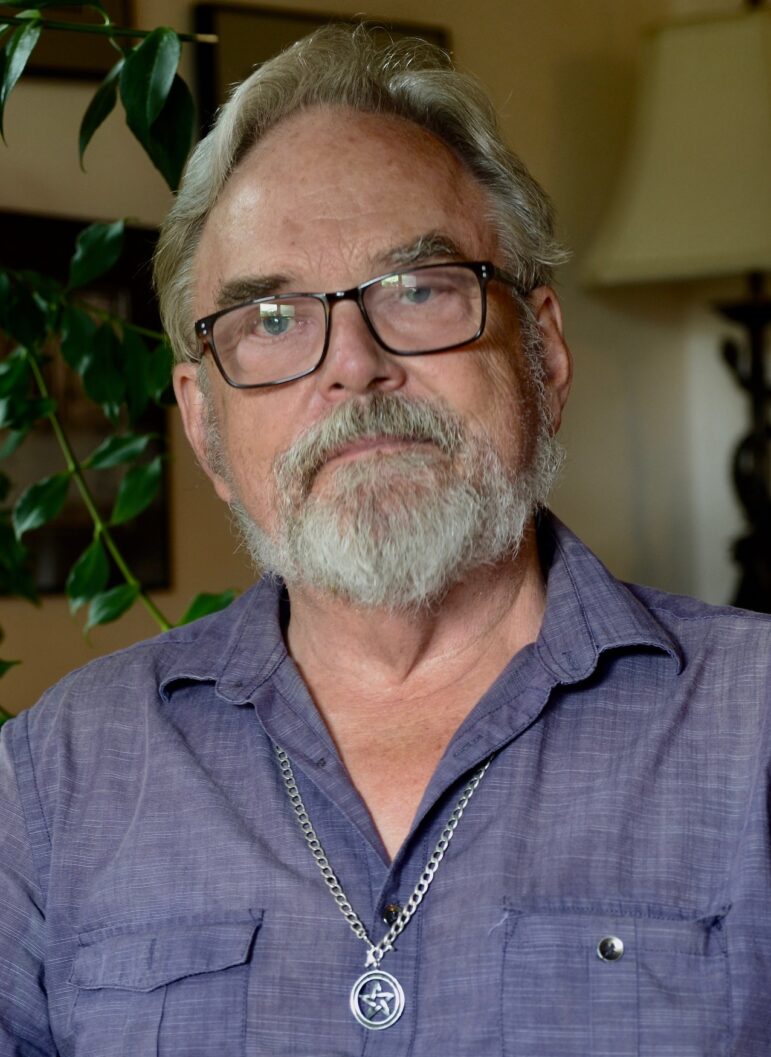 NeoPagan, Pagan, and indigenous spiritual traditions in general focus on harmony and balance rather than justice and rights. Indigenous peoples long connected to specific places involving concrete relationships with the other-than-human developed such ethics.
NeoPagan, Pagan, and indigenous spiritual traditions in general focus on harmony and balance rather than justice and rights. Indigenous peoples long connected to specific places involving concrete relationships with the other-than-human developed such ethics.
We NeoPagans share this outlook in a modern context, and our ethics reflect this commonality.
For us, values are inherent within the world and emerge within our relationships rather than existing as external standards imposed as divine commandments, as in most monotheisms, or deduced by human reason, as with utilitarianism. For us, justice emerges from a pattern of appropriate relationships.
Three words are central to how we envision morality, freedom, and justice:
Harmony
Respect
Appropriate
By “harmony” I mean existing as good members of our community. For us, this community includes more than human beings.
Harmony emerges from respectful actions appropriately done. A just society is a harmonious one.
Nothing respected is merely a means.
What is respected has value.“Appropriate” means contributing to as inclusive a harmony as possible. When harmony is disrupted we believe the task is to restore it rather than ‘get even’ with wrongdoers, or ‘give them what they deserve.’Our rituals and practices emphasize living in greater harmony with natural cycles and restoring what is out of balance in both the human and more-than-human world. Importantly, in practice, these words emphasize relationships and contexts, not abstractions.
This outlook opens us to a very different view of the world from that typical of Western modernity.
Many indigenous stories describe what happens to a people who destroy their harmonious relationship with the world. All with clear minds know that our world is woefully out of ecological balance, and the situation is getting more dire. Any future historians will add the modern world and its practices as another such tale.
It is easy to blame transcendental monotheism for this sad state of affairs.
Its advocates denied intrinsic value to the earth and located it above.
Modern secular science then built on this foundation emphasizing the earth and everything in it as a ‘resource’ for our use, without deeper meaning.
But the roots of our peril today lie deeper than transcendental monotheism, guilty as it has been.
From deepest to most recent these roots are
Language
Literacy
Transcendental monotheism
Science
Addressing their impact requires going to the core of this transformation.
All language distances us from direct experience, but some do more than others, and English is among the worst. Potawatomie Indian, and scientist, Robin Wall Kimmerer explains Native American languages are heavy with verbs and light on nouns.
English and other Western languages are the opposite. English frames the world as mostly inanimate, whereas Potawatomi frames the world as mostly animate. English is easily compatible with seeing the world as lifeless ‘its.’ A noun can move, but its movement is distinct from its identity. Movement is central to a verb. Western noun-heavy languages predispose speakers to see and experience the world as objects. And we know that language shapes perception. Potawatomi invites seeing the world as living subjects, of many independent ‘peoples.
David Abram demonstrated how literacy strengthens this disconnect. A text further intervenes between us and what it describes, and in doing so shifts our senses to emphasize the visual and internal, interpreted in words, not experiences. From a literate perspective, truth is not found so much by attending to the world, but by attending to relations between thoughts about the world.
This disconnects are further strengthened by ever more invasive media.
It is significant that the earliest uses of writing in ancient Sumeria were apparently to document agricultural produce, create contracts, and in science, calculate the orbits of planets. Later writing became used for purposes of finances, religion, government, and law. Even as late as Pagan Rome, the inner workings of rituals were to be experienced, not read about. The consciousness encouraged by literacy is very different from that opening us to the sacred.
Only then do transcendental monotheism and science enter the picture, strengthening pre-existing biases and obscuring contrasting ones, as the language of economics turns friendship into useful social capital and ignores the rest.
We NeoPagans and our indigenous friends offer a road back to the primordial experience of a sacred world, something able to put science, religion, literacy, and language into a larger context.
If we look at how people in indigenous cultures prepared to experience the world as alive and open to relationships, one thing stands out above the rest. They sought to remove themselves temporarily from their language’s normal influence, weakening language’s distancing impact, just as literacy strengthens it. Isolation, trance, ordeals, entheogens, dance, music, and other approaches all sought to put normal language aside, so it could not interfere with more basic insights and experiences.
Our emphasis on the concrete over the abstract and experience over texts is vital for the world today. What has been forgotten can be remembered. Even modern Westerners, many of them, can begin to intuit such a world if they experience wild nature without distraction or read nature-writing that emphasizes experience over reasoning, so as to ‘take you there.’
I think it is no surprise modern nations seeking to give natural features legal rights, have been influenced by their indigenous citizens. The local Māori have fought for the Whanganui, New Zealand’s third largest river, gaining official status as an ancestor for 140 years. In 2017 their bid to have the river awarded legal status as a living entity became law.
“The reason we have taken this approach is because we consider the river an ancestor and always have,” said Gerrard Albert, the lead negotiator for the Whanganui iwi [tribe].“We have fought to find an approximation in law so that all others can understand that from our perspective treating the river as a living entity is the correct way to approach it, as an indivisible whole, instead of the traditional model for the last 100 years of treating it from a perspective of ownership and management.”
The techniques perfected over thousands of years by indigenous peoples, and beginning to be practiced again today by many Western NeoPagans and others whose ancestors had long abandoned them can deepen these experiences into genuine encounters with the sacred. And with these encounters comes a new way of relating to our world.
After the close of the Parliament of World’s Religions, Currot added via social media:
With the rise of religious bigotry and fascism, we need to join together with all the faith communities to combat hate and ignorance. We must be able to work together and that means conversations, empathy, community and connection. All of which happens at parliament.
We are changing hearts and minds one connection and conversation at a time. There were many connections made in which the person has never met a Pagan and we were not what they thought we were or what the media tries to tell everyone. These conversations are being brought to their communities around the world and are making slow steps to acceptance, kindness, respect and being welcomed.
We currently don’t know when or where the next parliament will be. But wherever it ends up we will still need the Pagans there. Our work and fight is not done and especially now as we see the rise of bigotry. We will not go back into the “broom closet” we will fight for our voice, our practices, our families and communities.
We need other Pagans and allies to stand with us and be a part of these interfaith dialogues and events. We must meet and make connections with leaders and financial backers so they us and not what the media shows them.
This is why parliament is important. This is why it is important for Pagans to be in parliament.
The Wild Hunt is not responsible for links to external content.
To join a conversation on this post:
Visit our The Wild Hunt subreddit! Point your favorite browser to https://www.reddit.com/r/The_Wild_Hunt_News/, then click “JOIN”. Make sure to click the bell, too, to be notified of new articles posted to our subreddit.
